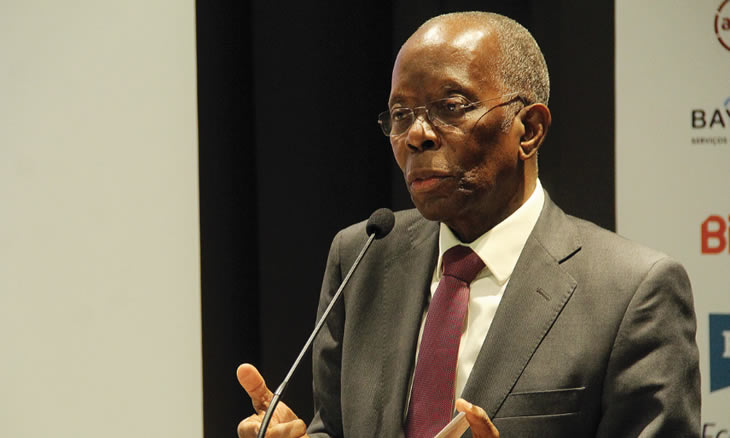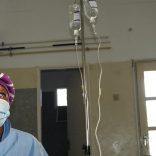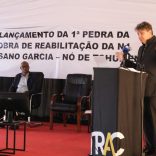Mozambique: Still no date for the start of the N1 rehabilitation - Watch
Government took US$248M from capital gains for “emergency expenses” – O País

Photo: O País
The Mozambican state has earmarked US$880 million in capital gains from the sale of Anadarko’s assets to France’s Total. Of this amount, the Minister of Economy and Finance revealed that about US$248 million was subtracted to finance “emergency expenses”.
Last September, French oil major Total acquired the assets of US company Anadarko in Area 1 of the Rovuma basin in Cabo Delgado for US$3.9 billion.
Total now leads the Mozambique LNG project with a 26.5% stake, in concert with the Mozambican Hydrocarbon Company (ENH) with 15%, Mitsui E&P Mozambique Area1 Ltd (20%), ONGC Videsh Ltd (10%), Beas Rovuma Energy Mozambique Limited (10%), BPRL Ventures Mozambique BV (10%) and PTTEP Mozambique Area 1 Limited (8.5%).
Total’s acquisition netted the Mozambican state US$880 million in capital gains tax, whose use aroused some controversy as a result of pronouncements by President Filipe Nyusi at the time indicating the destination of the said amount.
Addressed on this issue, Economy and Finance Minister Adriano Maleiane said that there is no reason for so much fuss, as “the money will be used with a lot of responsibility.”
“From the capital gains, the Government has subtracted 16 billion meticais (about US$248 million) and, so far, only eight billion meticais (about US$124 million) have been used for emergency expenses, which included financing the general election deficit and covering the impacts of the Ida and Kenneth cyclones,” the governor explained.
He further clarified that there was no violation of legal procedures, as using this type of extraordinary revenue for socio-economic emergencies is foreseen in the budget law.
“I can guarantee that the capital gains money is well looked after in a special account at the Bank of Mozambique. What was taken will be restored in its entirety,” the Minister of Economy and Finance said in Maputo on Tuesday at the launch of a survey of the banking sector in Mozambique prepared by KPMG in partnership with the Mozambican Association of Banks (AMB).
Regarding the study, Adriano Maleiane challenged banks to increase financing for the economy and maintain market discipline, as well as reducing the cost of money.
“The financial system appears to be good, given the results presented here [in the KPMG research]. The government remains committed to fiscal consolidation. We have to grow amid austerity,” he said.
Bank of Mozambique Deputy Governor Victor Gomes said that “the Mozambican financial system remains solid and robust.”
“Looking at the banking sector, it continues to grow, with total assets as a percentage of gross domestic product rising from around 63% in 2018 to 65% in September 2019,” the central bank’s “Number Two” said.
In addition, this growth has been accompanied by increased competition, diversity and availability of financial products.
However, despite the improvement, Gomes warns that it is necessary to “improve risk, governance and business models to make the banking system more competitive and dynamic, taking over its role as the main financier of the economy.”
Other challenges, he said, were cybersecurity and the regulatory framework.
Survey conclusions
The results of the 2019 banking sector survey indicate that banks active in the Mozambican market achieved profits of MZN 17.2 billion in 2018, representing a 28% increase over the previous year.
This performance is attributed to the overall reduction in the level of impairment in the income statement, exchange rate stability and cost containment and cost reduction initiatives, according to the joint research by KPMG and AMB.
Loans and advances also increased in the period under review from 235 billion meticais in 2017 to just over 236 billion meticais.
Another highlight is the solvency ratio, which is currently around 25% on average, well above the 12% recommended by the financial system regulator. Bad loans stood at 7% in 2018, against 8% in 2017. However, despite this reduction, the level remains above the recommended 5%.
The weight of foreign currency lending over total lending shifted from around 25% in December 2018 to 21% in September 2019. For the Bank of Mozambique, this improvement reflects efforts to reduce the degree of dollarization of the economy.
The survey by auditors KPMG and the Mozambican Banks Association, first undertaken in 1998, involved all 19 of Mozambique’s financial institutions.
By Edson Arante












Leave a Reply
Be the First to Comment!
You must be logged in to post a comment.
You must be logged in to post a comment.